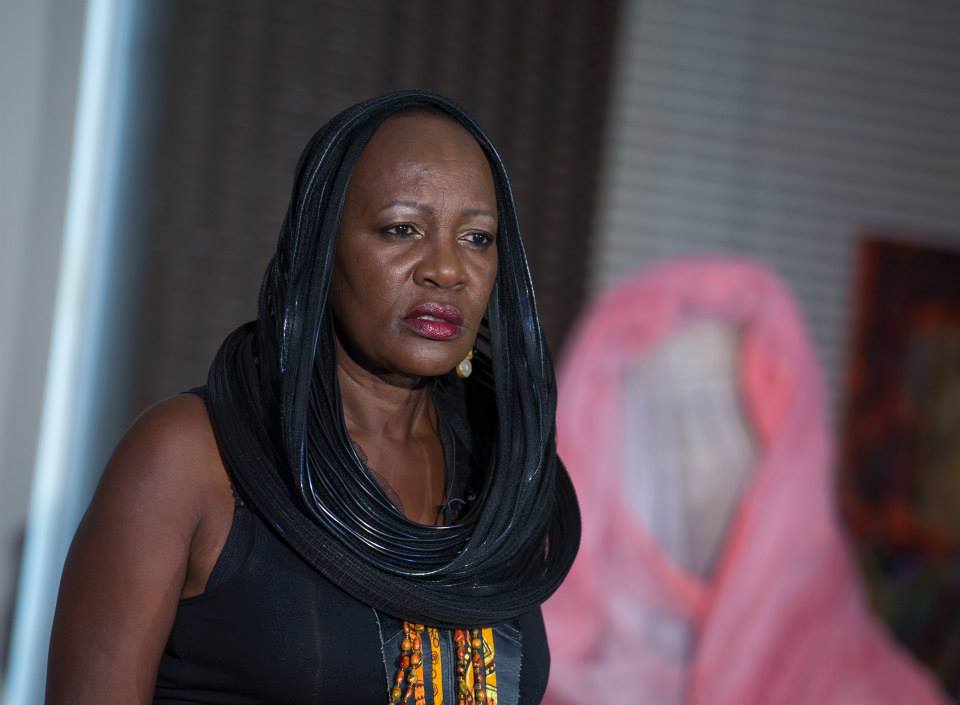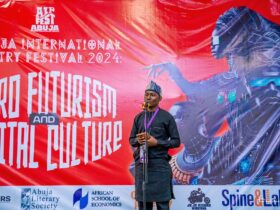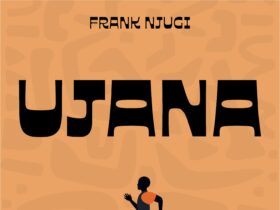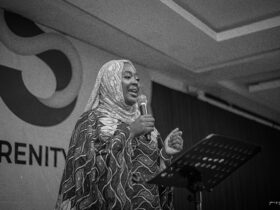
Konya Shamsrumi: What is the process of writing a poem like for you? Is it a lot of hard work or easy?
Sitawa Namwalie: The process of writing a poem for me is easy. It is as if they are waiting for me to write them. I have written poems in minutes and they have been word perfect. But, typically, I write down the initial idea and then I work on it over time to get it to say what I want it to say. I have to make sure though that I save various versions because, sometimes, I may overwrite and take away the poem’s power. An important part of writing a poem for me is reading it to someone. Reading it out loud helps me find the ‘wrong notes’. A poem, after all, has its music.
Konya Shamsrumi: Please describe your sense of identity in this or any possible world in imagery or metaphor?
Sitawa Namwalie: I am the universe, forever, growing, expanding up and out. No, I am not an Eagle, I am the Universe. Can I be contained?
Konya Shamsrumi: If any of your poems could literarily save a person’s life, which poem would it be and can you describe the person whose life you think it would have saved?
Sitawa Namwalie: Names of the Dead is my most powerful poem. It is a tribute to the 1300 hundred who were killed during the post-election violence (in Kenya) of 2007/2008 that happened after a botched election. Names of the Dead would have saved Joyce, who was only one year old, when she died. Joyce was murdered when the church in which she and her mother had taken refuge at the start of the PEV was set alight. Such an “Africa” ending, don’t you think? African, for how mercilessly our lives can be snuffed out, by people who sometimes know us.
…Names come to me from unexpected places,
Slowly, slowly one by one,
They slip past offended silence.
Glide knife-like through indifferent kindness,
Soundless, they must avoid detection _______Shshshsh,
Some others arrive banging, loudly wailing,
Insistent!
Inconvenient!
They won’t be buried, …
Names of the Dead by Sitawa Namwalie (2010)

Konya Shamsrumi: What does Africa mean to you, as potential or reality?
Sitawa Namwalie: Africa is my heart. I am privileged to have been born on this continent that has tested humanity in so many ways. It has tested the humanity of those who came to enslave and colonise the continent’s humanity. And they failed the test. Africa has tested those who live here who are still searching for their own humanity. I know the true weight of being human because I am African.
Konya Shamsrumi: Could you share with us one poem you’ve been most impressed or fascinated by? Tell us why and share favorite lines from it.
Sitawa Namwalie: I am a great fan of Warsan Shire and her poem Home is enthralling. There are so many outstanding lines in that poem that I have a hard time picking one. The poem is impressive because although it does not shy away from expressing what a terrible thing it is to have to run away from your country, it is so compelling that I read it again and again, even as it shocks and distresses me.
Excerpt—
…no one would choose to crawl under fences,
be beaten until your shadow leaves you,
raped, then drowned, forced to the bottom of
the boat because you are darker, be sold,
starved, shot at the border like a sick animal,
be pitied, lose your name, lose your family,
make a refugee camp a home for a year or two or ten,
stripped and searched, find prison everywhere…
Warsan Shire.
Sitawa Namwalie is an award-winning Kenyan poet, playwright and performer known for her unique dramatized poetry performances which combine poetry and traditional Kenyan music to create a feast for the senses. “Cut off My Tongue,” her first performance, was performed all over Kenya and at the Hay Festival 2009. Sitawa’s growing body of work includes the dramatized poetry productions “Homecoming” (2011), “Silence is a Woman” (2014), and “Performing Nairobi: The Stories and Drama of a City” as well as two plays, “Black Maria on Koinange Street” and “Room of Lost Names” (2015). Her performances have been staged in Kenya, Uganda and Rwanda.













who was Warsan Shire?